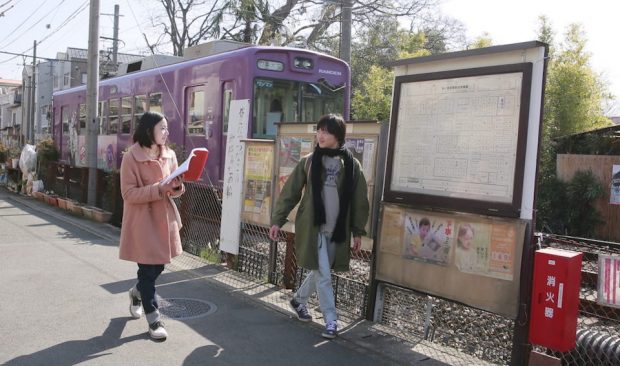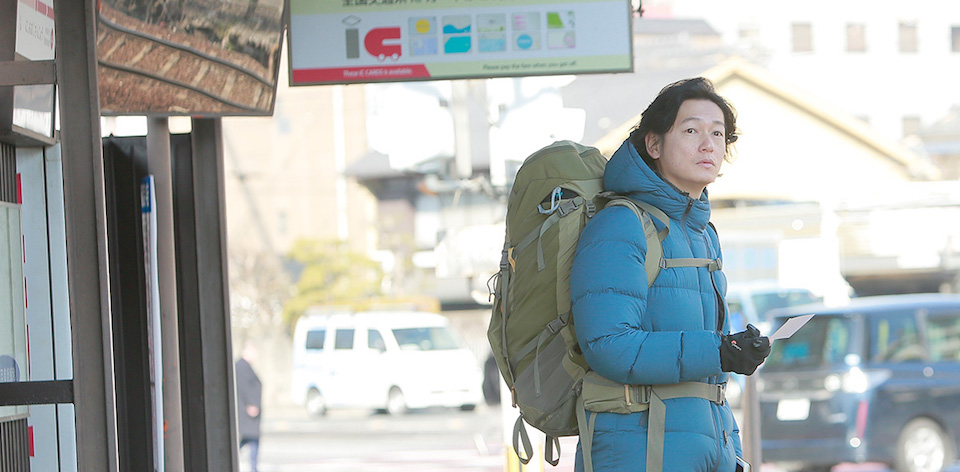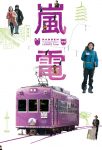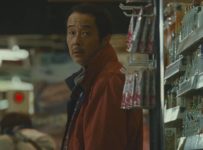Films about public transport are almost a subgenre in Japan. From the disaster film The Bullet Train (1975) or horror films like Ghost Train, to the more gentle leanings Hankyu Railways: A 15-Minute Miracle (2010) or the Railways film series (2010 – 2018), the films are often as reliable as the trains they are based on. Actor/director Takuji Suzuki joins this tradition with his latest film, combining a little bit of the surreal with the intersecting lines of the mass transit system.
RANDEN: THE COMINGS AND GOINGS OF A KYOTO TRAM (嵐電) draws its name from the 110-year-old tram line in western Kyoto City. The Randen is used as the backdrop to introduce three romantic stories: Hiraoka Eisei (Arata Iura), a writer from Kamakura researching supernatural stories; Ogura Kako (Ayaka Onishi), a local woman asked to be a “dialect coach” on an indie film; and high school girl Aomori, who falls in love with a train geek.
From the opening, as a pair of disembodied voices sing about the last train of the night, Takuji Suzuki signals that this film will not be the one you think it is going to be. While it has all the makings of being one of those hyperlinked romances set around a special day or city, and there’s certainly elements of that, the filmmaker manages to subvert a number of those expectations by hitting the track change switch more than once.

The “Fox and Raccoon Dog Train,” said to be a lucky symbol for couples, forms a thematic glue throughout the film. Yet by the time characters in animal makeup start appearing on the late night trains, the fox and raccoon dog become more literal spiritual guides through the emotional junction points for these characters.
Arata Iura’s character does more than simple engage in research tourism, aiding an older woman and forming a bond that connects him with his past. Similarly, Ayaka Onishi’s character insists that she is “no good around people,” adding a level of depth to a character that avoids the stock romance trope.
The sweetly sedate cinematography showcases the picture postcard aspects of the city, sometimes blending vintage and modern footage into a seamless montage of life in Kyoto. The “ghosts” of children, couples, and other citizens phase in an out of frame as Suzuki recalls the city’s rich history as well as emphasising the abstract nature of his subject.
If you’ve ever spent any time in Kyoto, you’ll know that there is an intangible vibe that swirls around the ancient capital. A basin that is surrounded by mountains, whether you are visiting a temple or that network of bars under a bridge. RANDEN manages to capture that ephemeral feeling in this fiercely local production.
2019 | Japan | DIR: Takuji Suzuki| WRITERS: Takuji Suzuki | CAST: Arata Iura, Ayaka Onishi, Satoko Abe, Hiroto Kanai | DISTRIBUTOR: JAPAN CUTS (US) | RUNNING TIME: 114 minutes | RELEASE DATE: 19 – 28 July 2019 (JAPAN CUTS)






